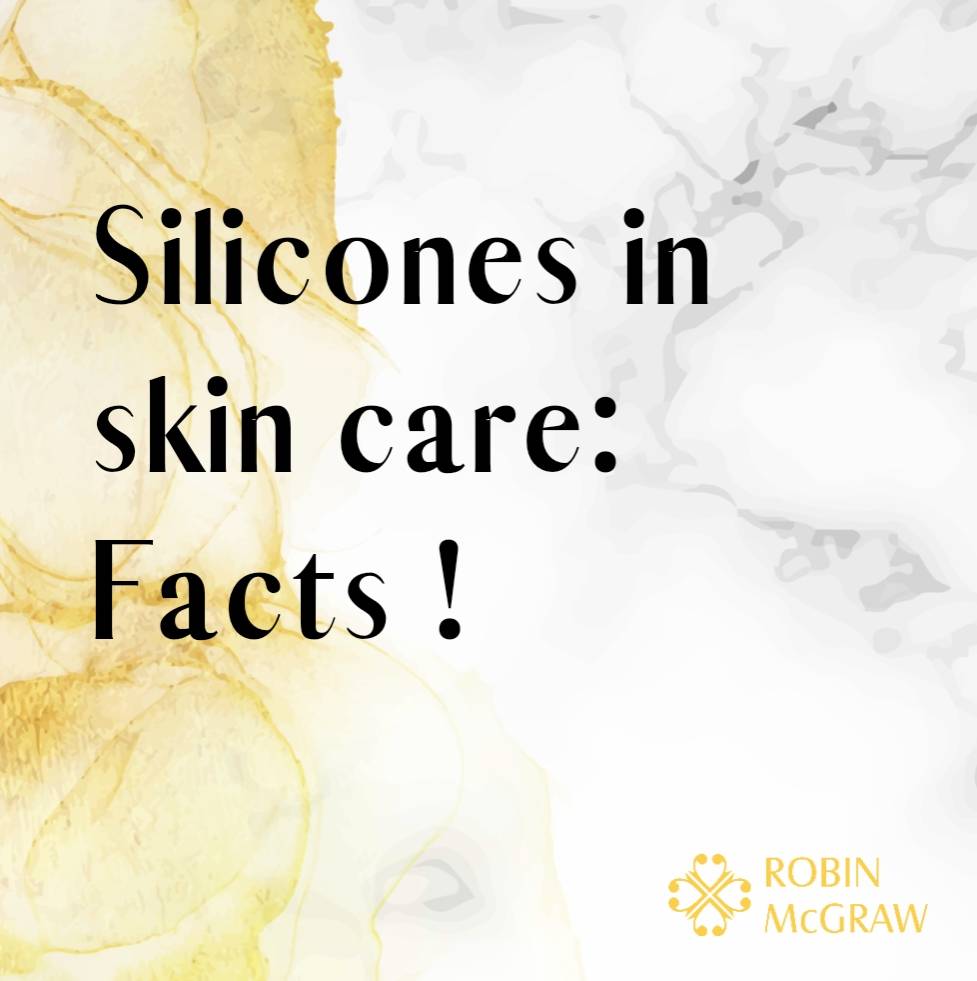
Silicones in Skincare: Unveiling the Facts!
Introduction
Skincare, a realm integral to our daily wellness, continuously evolves with scientific advancements and ingredient innovations. At the heart of these developments are silicones, a group of ingredients that have stirred both interest and debate among skincare enthusiasts and experts alike. This article delves into the world of silicones in skincare, shedding light on their functions, benefits, and the myths surrounding them.
Understanding Silicones in Skincare
Silicones, synthetic polymers known for their unique fluid properties, play a pivotal role in modern skincare formulations. These compounds are derived from a backbone of silicon and oxygen atoms, variably combined with carbon and hydrogen. Common types include dimethicone, cyclomethicone, and silicone crosspolymers, each serving distinct purposes in skincare products.
Functionally, silicones excel in enhancing product texture, offering a silky, spreadable consistency that's both pleasing to the touch and easy on the skin. Beyond mere aesthetics, they form a breathable barrier on the skin. This barrier aids in moisture retention without clogging pores, contrary to popular belief. Their versatility makes them a staple in a wide range of products, from moisturizers and serums to sunscreens and makeup.
The Benefits of Silicones in Skincare
Silicones are lauded for their multifaceted benefits in skincare. They are exceptional at improving product texture, giving a smooth, velvety feel that is highly sought after. This makes application more pleasant and enhances the sensory experience of skincare routines.
Moreover, silicones act as effective moisture retainers. By forming a permeable barrier, they lock in hydration, helping skin remain plump and hydrated. This barrier also provides a protective shield against environmental aggressors, which is essential for maintaining skin health.
In terms of safety and compatibility, silicones are non-comedogenic, meaning they don't clog pores or cause acne. This makes them suitable for all skin types, including sensitive and acne-prone skin. Their hypoallergenic nature further ensures that they are unlikely to cause allergic reactions, a significant advantage for those with sensitive skin.
Addressing Common Concerns and Myths
Despite their widespread use, silicones are often subject to myths and misconceptions. A common concern is that silicones suffocate the skin, trapping dirt and bacteria. However, research indicates that silicones form a breathable layer, not an occlusive one. They allow skin to "breathe" while still providing protection and hydration.
Another myth is the link between silicones and acne. Clinical studies have shown that silicones do not clog pores or exacerbate acne. In fact, their skin-conditioning properties can benefit acne-prone skin by providing gentle hydration and improving the texture of healing skin.
Lastly, the question of silicone build-up on the skin often arises. Silicones are designed to be easily washable and do not accumulate on the skin or hair with regular cleansing practices. Thus, they can be incorporated into daily skincare routines without fear of adverse effects from long-term use.
Silicones and Skin Health: An In-Depth Analysis
The relationship between silicones and skin health is nuanced and multifaceted. One of the key attributes of silicones in skincare is their impact on skin hydration. By forming a semi-permeable barrier, silicones trap moisture, effectively combating dryness and leaving the skin feeling soft and supple. This barrier also shields the skin from environmental stressors like pollutants and harsh weather conditions, further promoting skin health.
Silicones are particularly beneficial for those with sensitive or compromised skin. Their non-irritating nature reduces the risk of inflammation, making them a safe choice for people prone to allergies or skin reactions. Moreover, for acne-prone skin, silicones can provide a smooth base, reducing friction and irritation from other products or makeup.
Environmental Considerations and Silicones
The environmental impact of silicones in skincare is a topic of growing interest and concern. Silicones are synthetic and not biodegradable, raising questions about their sustainability and long-term environmental footprint. When washed off, they can enter water systems, potentially affecting aquatic life.
However, it's important to note that the cosmetic industry is evolving, with many manufacturers now focusing on developing more eco-friendly silicone alternatives or processes to reduce environmental impact. This includes the use of cyclic silicones which are easier to remove from the environment, or even bio-based silicones, a step towards more sustainable practices.
Alternative Choices in Skincare
For those seeking silicone-free skincare options, the market offers a plethora of alternatives. Natural oils and butters, such as shea butter or jojoba oil, are popular choices. These ingredients provide similar benefits in terms of moisturization and skin protection, though the texture and finish might differ from silicone-based products.
Another avenue is exploring advanced natural compounds that mimic the properties of silicones. Ingredients like squalane, derived from olives, or certain types of algae, offer similar silky textures and moisturizing benefits without the environmental concerns associated with synthetic silicones.
Conclusion and Key Takeaways
Silicones in skincare present a complex blend of advantages and considerations. They offer undeniable benefits in terms of texture, moisturization, and skin protection, making them a favored ingredient in many products. However, environmental concerns and the rise of natural alternatives are reshaping the conversation around their use in skincare.
Key Takeaways:
- Versatile and Beneficial: Silicones improve skincare product texture and enhance skin hydration without causing pore blockage or acne.
- Skin-Friendly: They are particularly beneficial for sensitive or acne-prone skin due to their non-irritating nature.
- Environmental Impact: While effective, silicones raise environmental concerns due to their synthetic, non-biodegradable nature.
- Natural Alternatives: There are viable natural alternatives to silicones, like squalane and natural oils, offering similar benefits with less environmental impact.
- Continued Innovation: The cosmetic industry is actively seeking more sustainable and eco-friendly alternatives to silicones, reflecting a shift towards environmental consciousness.
In conclusion, silicones play a significant role in skincare, balancing efficacy with user experience. As the industry evolves, so does the dialogue around silicones, driving innovation and more sustainable practices in skincare formulation.

